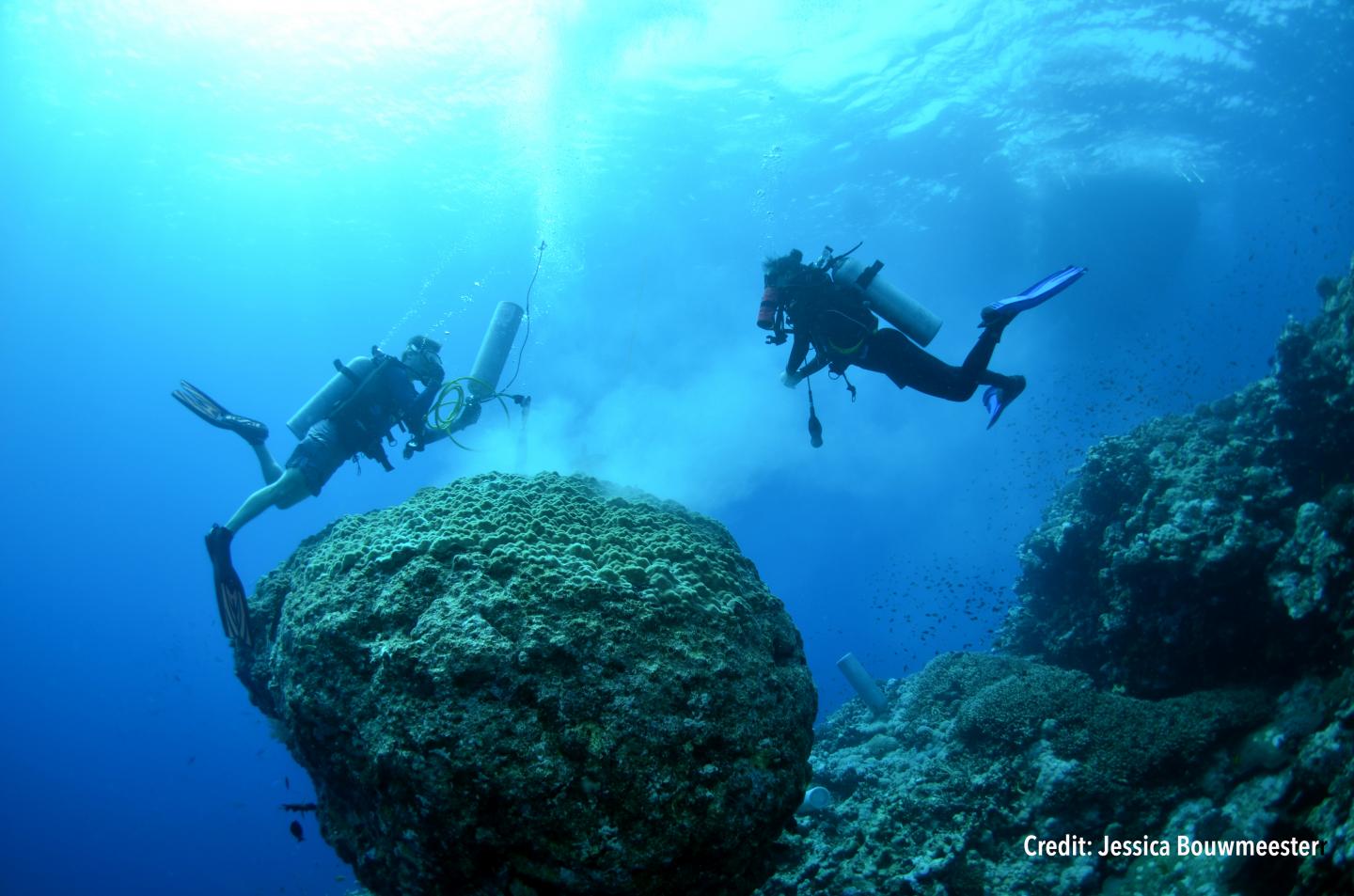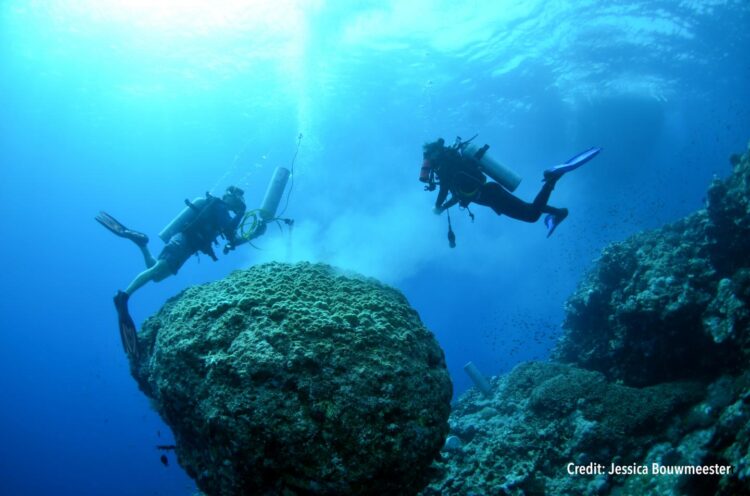
Credit: Jess Bouwmeester
A new study shows nutrients can aggravate the already negative effects of climate change on corals to trigger mass coral bleaching.
Coral reef environments are typically low in naturally occurring nutrients such as nitrogen and phosphorous compounds. But ocean currents passing by can bring in a concentration of nutrients from elsewhere. Similarly, nutrients from man-made fertilisers and stormwater runoff enter reefs from adjacent coastlines.
Lead author Dr Thomas DeCarlo from the King Abdullah University of Science and Technology (KAUST) says corals are sensitive to high levels of nutrients.
“As the climate warms, mass coral bleaching could occur as often as annually within this century,” Dr DeCarlo said. “In our study, we found that already heat-stressed corals exposed to excess nutrient levels were even more susceptible to bleaching.”
The study suggests ecosystem managers can reduce the impacts of coral bleaching by implementing strategies to reduce nutrient stress in areas subject to thermal stress.
Co-author Professor John Pandolfi from the ARC Centre of Excellence for Coral Reef Studies (Coral CoE) at The University of Queensland says this and previous studies, including on the Great Barrier Reef, related coral bleaching to combinations of heat and nutrient stresses.
“Our results provide a roadmap for coral reef conservation efforts to be at their most effective,” Prof Pandolfi said. “We suggest oceanographic processes should be included when deciding when and where to allocate resources or protection.”
Using the skeletal cores of long-living corals, the authors studied the past few decades worth of bleaching events in the Red Sea. They found the reefs historically suffered severe bleaching only when high sea surface temperatures were coupled with high nutrient levels.
The Red Sea was chosen as a study site as it is one of the only marine environments where the effects of summertime nutrients and heat stress are independent of each other: only one area has a single major source of nutrients in the summer, when a water mass brings nutrients to the surface through a process called upwelling.
Previous field tests on the role of nutrients in coral bleaching were otherwise difficult: nutrients and temperature often co-vary in the ocean, making it difficult to disentangle their effects. Nutrient loads are also difficult to measure in the same way sea surface temperatures are, via satellite.
“The fact that nutrients are more difficult to measure than temperature may be restricting our recognition of their importance,” Dr DeCarlo said. “And we need greater longer-term monitoring efforts of nutrient levels on coral reefs.”
“Incorporating nutrient-supplying ocean currents into coral bleaching forecasts will enhance those predictions that are based on temperatures alone,” Prof Pandolfi said.
“Our research suggests that projections of coral reef futures should move beyond solely temperature-based stress to incorporate the influence of ocean current systems on coral reef nutrient enrichment, and thus susceptibility to bleaching,” Dr DeCarlo said.
###
PAPER
DeCarlo T, Gajdzik L, Ellis J, Coker D, Roberts M, Hammerman N, Pandolfi J, Monroe A, Berumen M. (2020). Science Advances. ‘Nutrient-supplying ocean currents modulate coral bleaching susceptibility’. DOI: 10.1126/sciadv.abc5493
CONTACT
Dr Thomas DeCarlo (Hawaii/USA, HST)
P: +1 808 221 8584
E: [email protected]
Prof John Pandolfi (Australia, AEST)
P: +61 (0)400 982 301
E: [email protected]
FOR FURTHER INFORMATION
Melissa Lyne (Australia, AEST)
Media Manager, Coral CoE
P: +61 (0)415 514 328
E: [email protected]
Media Contact
Melissa Lyne
[email protected]
Related Journal Article
http://dx.





